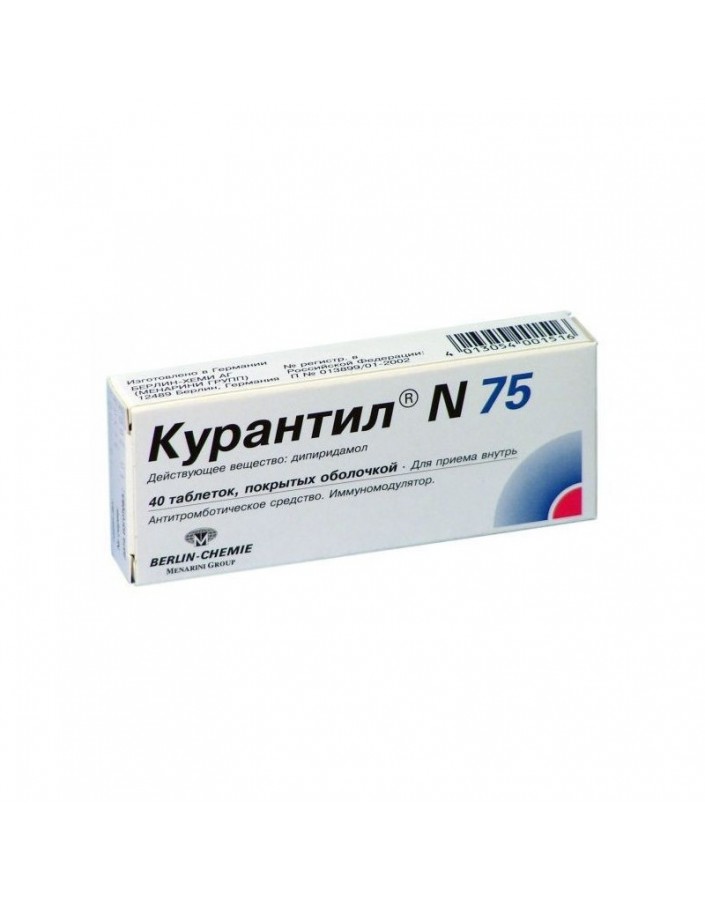




Security policy (edit with Customer reassurance module)

Delivery policy (edit with Customer reassurance module)

Return policy (edit with Customer reassurance module)
| pharmachologic effect
A drug that improves microcirculation. Antiplatelet. Angioprotector. Stimulates the synthesis of prostacyclin by endothelial cells, inhibits the reuptake of adenosine by red blood cells and inhibits platelet phosphodiesterase. Curantil reduces the adhesion and aggregation of platelets and improves the deformability of red blood cells, reduces the increased tone of arterioles, effectively improving microcirculation and blood flow in all arterial pools, promotes the growth and opening of collaterals. It has a moderate venotonic effect on the cerebral vessels. Normalizes increased platelet aggregation (as opposed to acetylsalicylic acid), without suppressing cyclooxygenase-1 and without increasing the risk of hemorrhagic complications, such as bleeding from the gastrointestinal tract and hemorrhagic stroke. Prevents dystrophic changes in the placenta, improves placental blood flow, eliminates fetal tissue hypoxia. Stimulates the production of endogenous Interferon. Indications and usage- treatment and prevention of disorders of cerebral blood circulation in ischemic type; Set individually depending on the severity of the disease and the response of the patient. Adverse reactionsCardiovascular: noise in the head, dizziness, headache, transient facial flushing; rarely - worsening of CHD, tachycardia. Contraindications- acute myocardial infarction; Pregnancy and breastfeedingDuring pregnancy, the drug is used according to strict indications and under close medical supervision. Special notesTo prevent arterial thrombosis and thromboembolic states, it is possible to use the drug in combination with other antithrombotic agents. OverdosageDipyridamole ingestion in a dose of 200 mg in humans resulted in a decrease in blood pressure. Reportedly, no life threatening symptoms were observed even with a dose of 2 g. Drug InteractionsXanthine derivatives weaken the effect of Curantila. Storage conditionsThe drug should be stored at room temperature. |